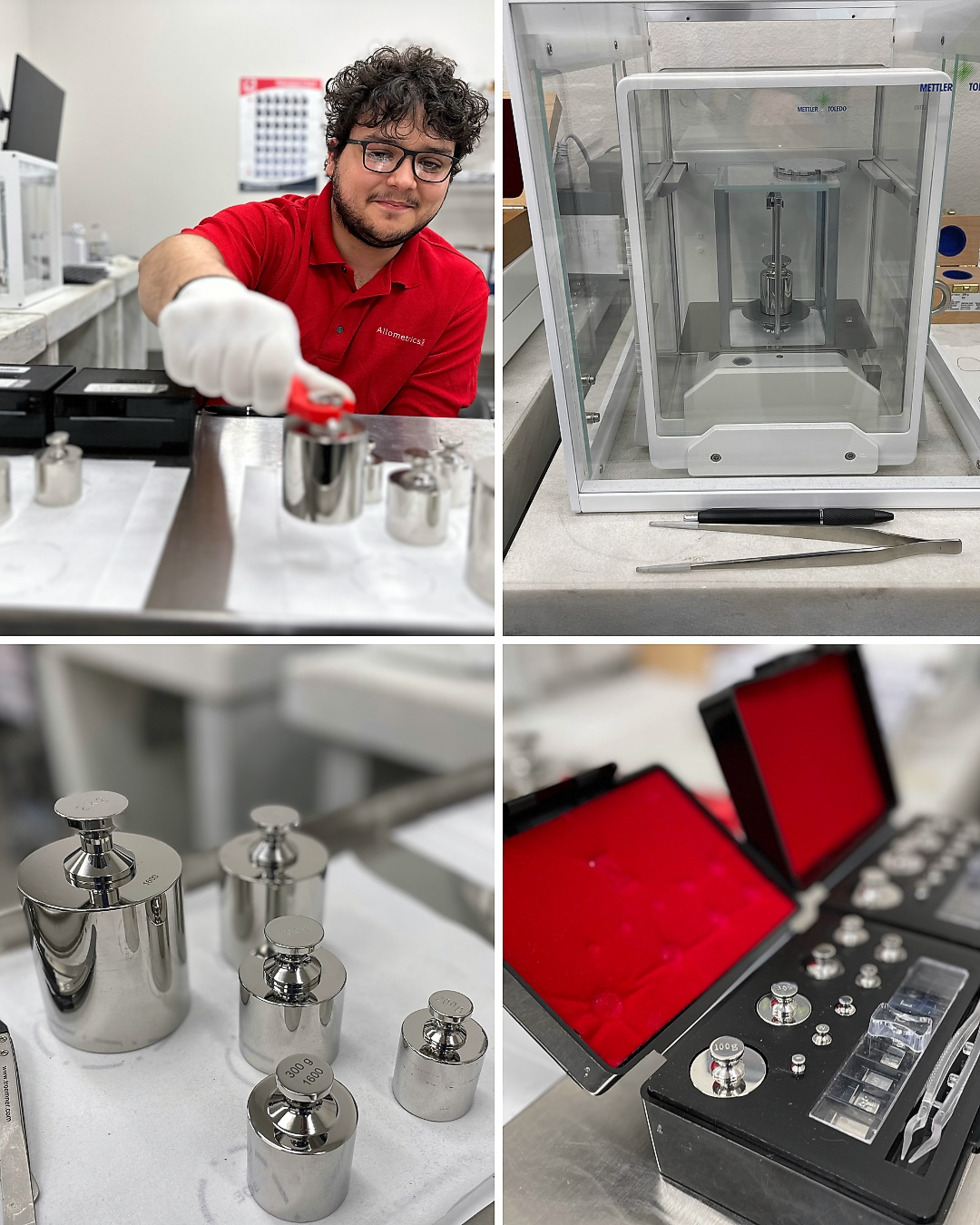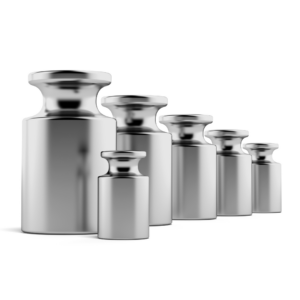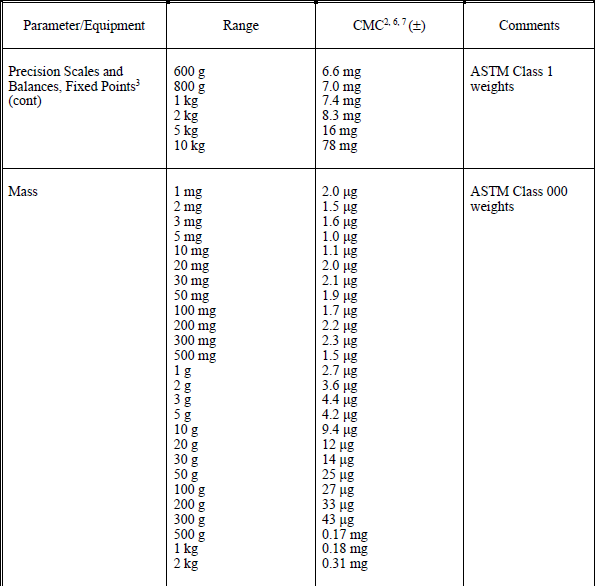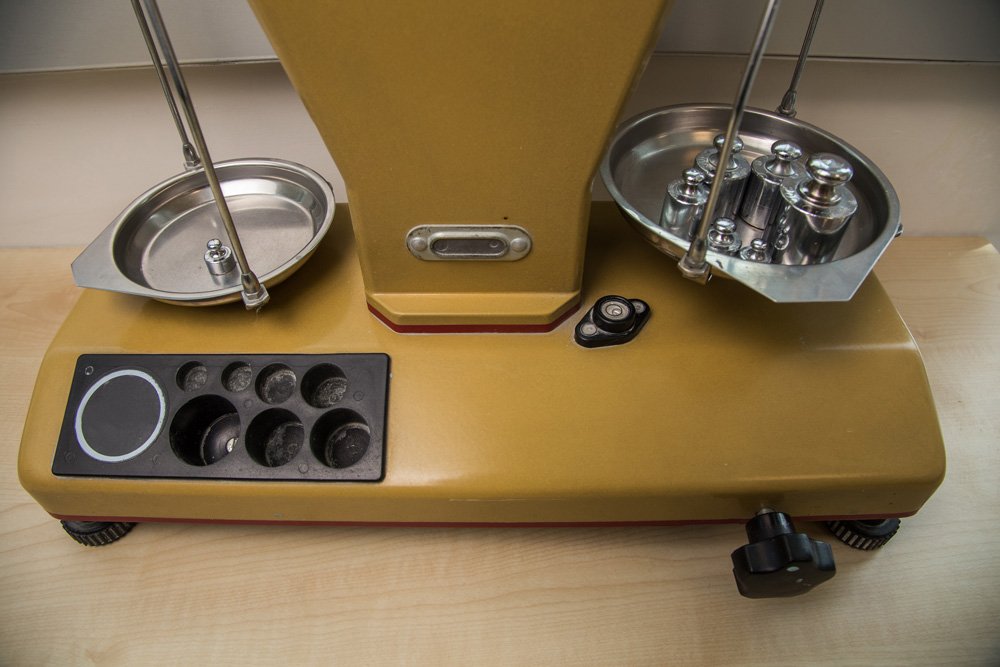
Accredited Weight Calibration Services
Weights require periodic calibration to maintain traceability and accuracy. Given the need for precision in weight measurements, it is wise to entrust your weight calibration services to an accredited lab with direct NIST traceability. As an accredited weight lab, all calibrations by Allometrics are traceable to NIST standards providing you with absolute confidence and the required documentation to assist you in the use of your balance precision weights.
Our mass metrology lab is A2LA Laboratory Accredited for weight calibration. This accreditation signifies a stamp of approval for technical competence in weight calibration services.
Moreover, our A2LA accreditation is compliant with ISO/IEC 17025 calibration standards.
With more than 40 years of experience in the industry and our commitment to providing an outstanding level of customer service, Allometrics is the ideal partner for all your weighing calibration needs.
About A2LA and NVLAP
The American Association for Laboratory Accreditation A2LA, together with the National Voluntary Laboratory Accreditation Program (NVLAP), represents the leading accrediting body for laboratory testing and calibration companies.
Accredited Weight Calibration Capabilities
At Allometrics, we can calibrate balance precision weights ranging from 1mg to 10kg. Out tight weight calibration uncertainties permit us to calibrate balance precision ASTM Class 1 weights and ASTM Class 000 weights.
Our NIST Traceable Certificates include every weight calibration you may need for your balance precision weights. See the following exhibit for more information.


What is Laboratory Balance and Scale Calibration?
Laboratory Balance and Scale calibration is the process of validating weighing instruments precision by performing extensive testing. Once we’ve completed the examination, the data obtained is compared with a known and accepted standard. Laboratory Balance and Scale calibration allows us to identify any problems with data outputted by a weighing instrument and rectify it as needed.
The accredited calibration services provided by Allometrics typically include both the instrument’s analysis and, when required, the repair of the device to bring their precision back to acceptable standards.
Why Is Laboratory Balance and Scale Calibration Needed?
The precision of all weighing instruments slowly degrades over time as a result of continuous use, electrical overloads, environmental changes, and accidents. All these factors contribute to changes in instrument performance, which, if not addressed, will result in inadequate readings.
What Benefits Does Regular Scale Calibration Provide?
Regularly calibrating your weighing equipment ensures it is fit for use, and will provide weight measurements with minimal deviation from the industry’s accepted standards.
Additionally, Allometrics, as an accredited weight calibration lab, will issue a certificate providing a comprehensive breakdown of the testing methods, standards used, data collected and analyzed, as well as issues identified and rectified.
Accredited Calibration Services offer many benefits, including:
- Maintaining the precision of all your weighting instruments and the measurements they provide.
- Ensuring your company adheres to all relevant industry, state, federal and international regulations.
- Saving money by avoiding costly rework, waste, and potential product recalls.
- Preventing costly financial penalties, legal action and complaints from customers.
- Extending the lifespan and providing traceability of your weighing equipment.
- Increased profitability since weighing instruments that receive professional calibration services according to defined tolerances are known to improve industrial processes.
Allometrics offers accredited weight calibration services by trained CETA-certified, and NSF-accredited technicians working from our state-of-the-art ISO 17025 accredited laboratory considered to be the best in the region.
Risks of Not Calibrating Your Measurement Equipment
A weighing instrument that is not correctly calibrated can affect nearly every aspect of your business process, including safety, productivity, and product quality.
By using improperly calibrated instruments, businesses run the risk of encountering production problems, including:
- Safety issues
- Wasted time, resources, and manpower capabilities
- Unscheduled downtime
- Product quality issues
- Process and audit problems
- Product recalls and rework

